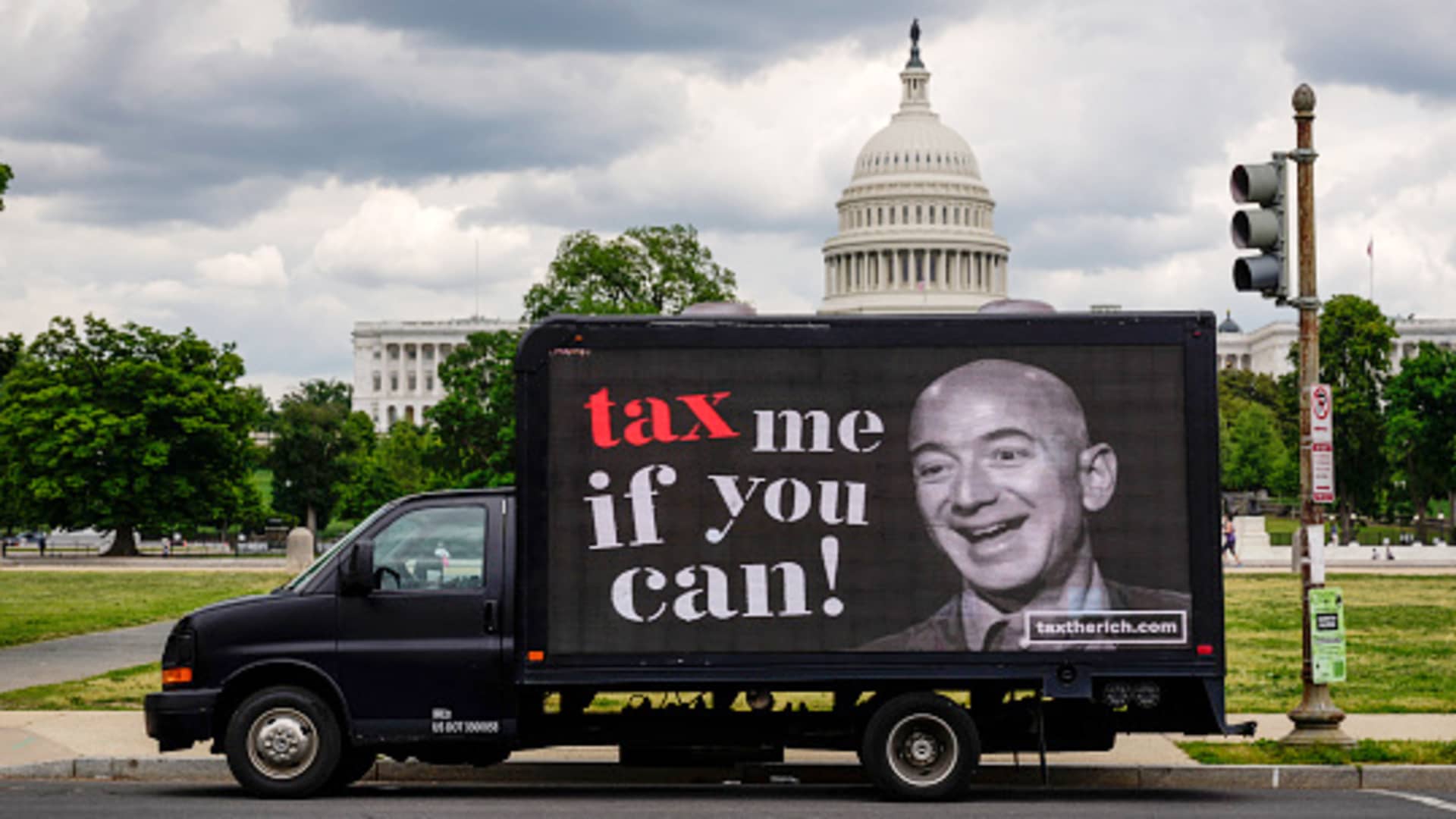
The number of billionaires soared during the pandemic. How tax proposals aim to reduce wealth inequality
As the number of billionaires has grown since the pandemic started, calls to "tax the rich" have increased. Here's how those levies may work.
KEY POINTS
- An additional 573 people have claimed billionaire status since the Covid-19 pandemic began, according to a new report.
- Meanwhile, 263 million people are at risk of falling into extreme poverty this year.
- The widening of the gap between rich and poor has led to renewed calls for the U.S. to tax wealth.
A new billionaire was created on average about every 30 hours during the Covid-19 pandemic, according to a new report by Oxfam, the global charity focused on eliminating poverty.
Now, 573 more people around the world can claim billionaire status compared to 2020 when the pandemic began, for a current total of 2,668 billionaires.
Yet 263 million people are at risk of falling into extreme poverty this year, signaling deepening wealth inequality exacerbated by the pandemic.
The widening divide between the haves and have-nots highlights the need for more taxes on the wealthiest, according to Oxfam.
"We really need for Congress to step in and for the administration to step in and tax the most wealthy in our society so that we can really start to invest in public services and in working people," said Irit Tamir, director of the private sector department at Oxfam America.
"Right now, the average billionaire — there are about 790 of them or so in America — has a federal tax rate of 8%," Biden tweeted on Sunday.
"No billionaire should be paying a lower tax rate than a teacher, a firefighter, an electrician or a police officer," he said.
One key idea that has received attention is taxing unrealized capital gains, or the value of assets that have not yet been sold.
This may be tricky with privately held businesses, particularly when it comes to determining a value both the IRS and owners can agree on. Consequently, one idea from Sen. Ron Wyden, D-Ore., calls for applying this tax annually to just publicly traded assets. Other non-traded assets would instead be taxed when they are sold.
This approach could become complicated for taxpayers if the value of their assets declines, and they have to reconcile the taxes they have already paid.
Another approach would be to get rid of a mechanism that allows people to avoid paying taxes on the increases in the value of assets over their lifetimes, formally known as a step-up in basis at death.
For example, suppose you buy a stock for $10, and then it is worth $100 when you die. When your heirs receive the stock, their basis will be $100, based on current rules. Consequently, they will not be taxed on the $90 increase in value that happened during your lifetime.
That could be changed so that heirs will owe taxes on any gains since the original cost basis, or the $10 at which you originally purchased the stock.


